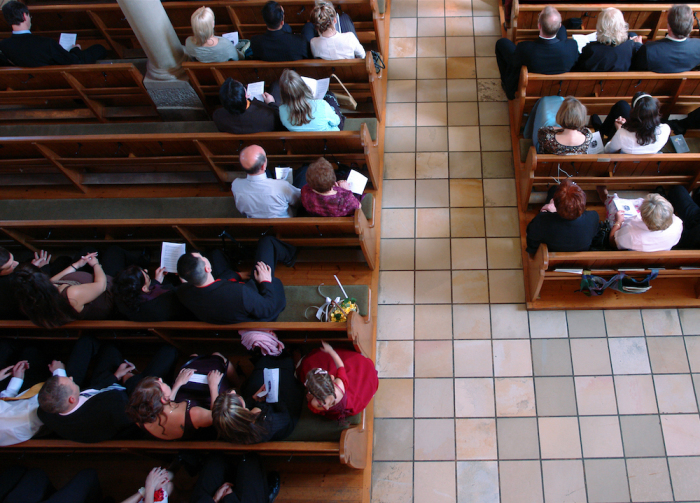‘A Christian body that waffles on truth has no credibility and cannot bless the nation as it is called to do’

A new survey reveals that most Americans reject the idea of an absolute moral truth as the prominent Christian researcher behind the report warns that the absence of this concept has wide-ranging implications for societal harmony.
The Cultural Research Center at Arizona Christian University released the latest installment of its 2025 American Worldview Inventory on Thursday. The data in the report is based on responses collected from 2,100 adults in January. The research examined Americans’ views about whether or not there is an absolute moral truth.
When asked whether they agreed that “a mature human accepts different truth views to be just as valid as their own views,” 67% of respondents answered in the affirmative. Majorities of non-Christians (69%), those without any particular faith (68%), self-identified Christians (67%) and theologically identified born-again Christians (56%) agreed with this statement. Thirty-one percent of integrated disciples agreed with this view, making them the only group where less than half rejected the idea of an absolute moral truth.
The survey defines a theologically identified born-again Christian as someone who believes “they will go to Heaven after they die but only because they confessed their sins and accepted Jesus Christ as their savior,” while clarifying that the term “Integrated Disciples” refers to “adults who possess a biblical worldview, based on answers to worldview-related questions.”
Most respondents (58%) also agreed that “there can be multiple, conflicting moral truth views in any given situation without anyone being wrong.” Larger majorities of non-Christians (64%) and non-religious respondents (61%) ascribed to this view as did most self-identified Christians (56%). Less than half of theologically identified born-again Christians (47%) and a minuscule share of integrated disciples (6%) embraced this idea.
While only 45% of respondents believed that “perceptions of moral truth change over time and across cultures, proving there is no absolute moral truth,” most non-religious (55%) and non-Christian respondents (53%) believed that moral truth can change over time. Less than half of self-identified Christians (41%), theologically identified born-again Christians (28%) and integrated disciples (6%) endorsed this view.
Non-religious respondents were the only group where a majority (54%) thought that “different religions/philosophies having conflicting ideas about moral truth proves there are no moral absolutes.” Less than half of all adults (44%), non-Christians (43%), self-identified Christians (41%), theologically identified born-again Christians (30%) and integrated disciples (14%) agreed with that idea.
While one-third of respondents overall (33%) and less than half of members of all other denominations believed that truth is a “social creation” as opposed to “an absolute, consistent reality unaffected by cultural differences,” non-Christians (36%) and those without a religious faith (35%) were more likely to hold this opinion than self-identified Christians (31%), theologically identified born-again Christians (26%) and integrated disciples (4%).
When it comes to the belief that “telling a falsehood of minor consequence in order to protect your personal best interests or reputation is morally acceptable,” 33% of respondents answered in the affirmative, along with 42% of non-Christians, 34% of the non-religious, 31% of self-identified Christians, 23% of theologically identified born-again Christians and 4% of integrated disciples.
In a statement reacting to the research, Arizona Christian University professor and Cultural Research Center Director George Barna maintained that there is a direct correlation between Americans’ views on absolute moral truth and the volatile climate the U.S. finds itself engulfed in. “It is impossible to separate America’s core values — such as honesty, respect, service, responsibility, trustworthiness — from beliefs about moral truth,” he said.
“New data shows that Americans trust each other less, are disappointed in the lack of respect shown toward others, a growing emphasis upon being served rather than serving others, and the generational divide over commitment to personal responsibility,” Barna added. “These are all outgrowths of the increasing belief that there are no absolute moral truths that bind us together and should shape our life choices for both personal and communal benefit.”
Barna added: “Accepting all truths as equally valid cannot help but dig a deep foundation of chaos, confusion and helplessness. In the absence of strong, consistent, logical, and compassionate opposition to philosophies that reject moral absolutes, cultural gravity will lead to the acceptance of an authoritarian political savior or powerful elitist group as the arbiter of truth for the masses.”
While stressing that “such leaders have claimed to reject moral absolutes in favor of policies that are good for the people,” Barna warned that “objective analyses indicate that more often than not they simply impose their own absolute moral code under the guise of looking out for the best interest of the masses.”
“Those situations never bode well for the public, and the ideology pendulum typically swings back to the masses yearning for a return to moral absolutes based on a standard of individual freedom within defined, compassionate, and proven moral boundaries,” he insisted. Barna also weighed in on the role that churches have to play in formulating the idea of absolute moral truth.
Barna declared that “Churches that fail to persistently teach reasons why the Bible can be trusted, what moral truth is, why it must be understood as absolute rather than situational, and facilitate accountability for the application of biblical truth in our personal lives are not churches with biblical purpose and power, but merely pawns of the culture.”
He added that “a Christian body that waffles on truth has no credibility and cannot bless the nation as it is called to do.”
Ryan Foley is a reporter for The Christian Post. He can be reached at: ryan.foley@christianpost.com

















